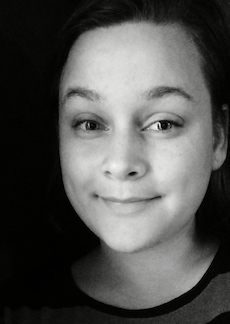Editor’s Note
Volume Nine: Do Not Speak to Me of Runaway Bulls
2022 threw challenges at our Runestone team this year. From a change in class structure and leadership to a false-alarm violence threat at our University, our student editors this year stuck with us this year in the spirit of good literature and amplifying emerging writers. Every Tuesday and Thursday, no matter the challenges of the day, my intrepid teaching assistant Corva Leon and I were met with enthusiasm for the class ahead. Paired with an inspiring interview with the luminous Ari Tison, author of the forthcoming YA novel Saints of the Household, this year’s editorial team spoke to me of the power of literary community — none of us do this work in a vacuum — and when we help each other out, we can make something beautiful.
We take this year’s title, Do Not Speak To Me of Runaway Bulls, from Jules Griswold’s poem The Herd-Hands Ghazal. In this poem, attention is given to the passing of a cowboy hat, perhaps, as one editor may read it, as a symbol for the way we pass down notions of both violence and tenderness. Inheritance was an important theme this year. In Getting Crisper Here, the narrator inherits letters from a deceased grandmother, while at the same time inheriting a sense of ennui and longing that permeates the day.
The personal is political is a common, yet poignant, phrase that comes to mind when soaking in the work published with Runestone this year. In the essay Ramen Noodles and the short-story A Perm in Three Acts, we read two distinct authors centering the topic of Black hair while also tracing growth and inheritance in twisting, winding patterns.
We had fascinating conversations about the short story Omega Mart and Military Helicopter, both of which are distinctly amorphous while at the same time sharply political. Omega Mart made us question the saturation of dystopia stories in our culture, especially when they seem to become more and more real every day. But it was this story’s brevity and lack of technical specifics that intrigued us most of all — when you strip down the bells and whistles of a dystopian story, what is the human element waiting within? Sparseness in Military Helicopter mirrored this as well, a sense of sublimity in conformity that, in its brevity, impells you to read again and again, questioning meaning each time.
It all makes this editor wonder: what happens when we let wildness run away from us? And what transformations happen when it comes back to us, and we let it run free?
-Halee Kirkwood, Faculty Editor
Halee Kirkwood is a 2023-2025 Jerome Hill Artist Fellow, a ‘22 Indigenous Nations Poets fellow, and was a 2019-2020 Loft Mentor Series Fellow. Their work has been published in Poetry Magazine, Water~Stone Review, and others. They are the winner of the 2022 James Welch Prize for Indigenous poets, published with Poetry Northwest. They live in Bdéota Othúnwe (Minneapolis) and are a first generation descendant of the Lake Superior Band of Ojibwe.

